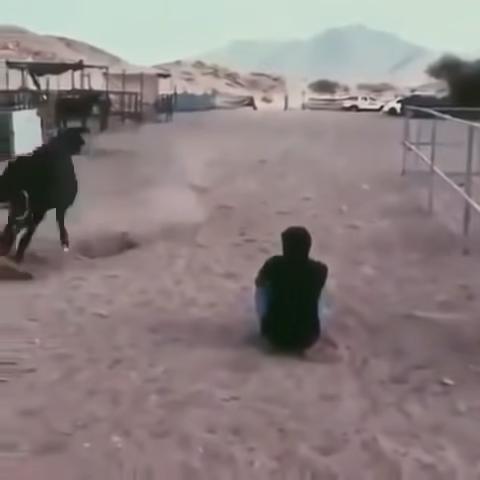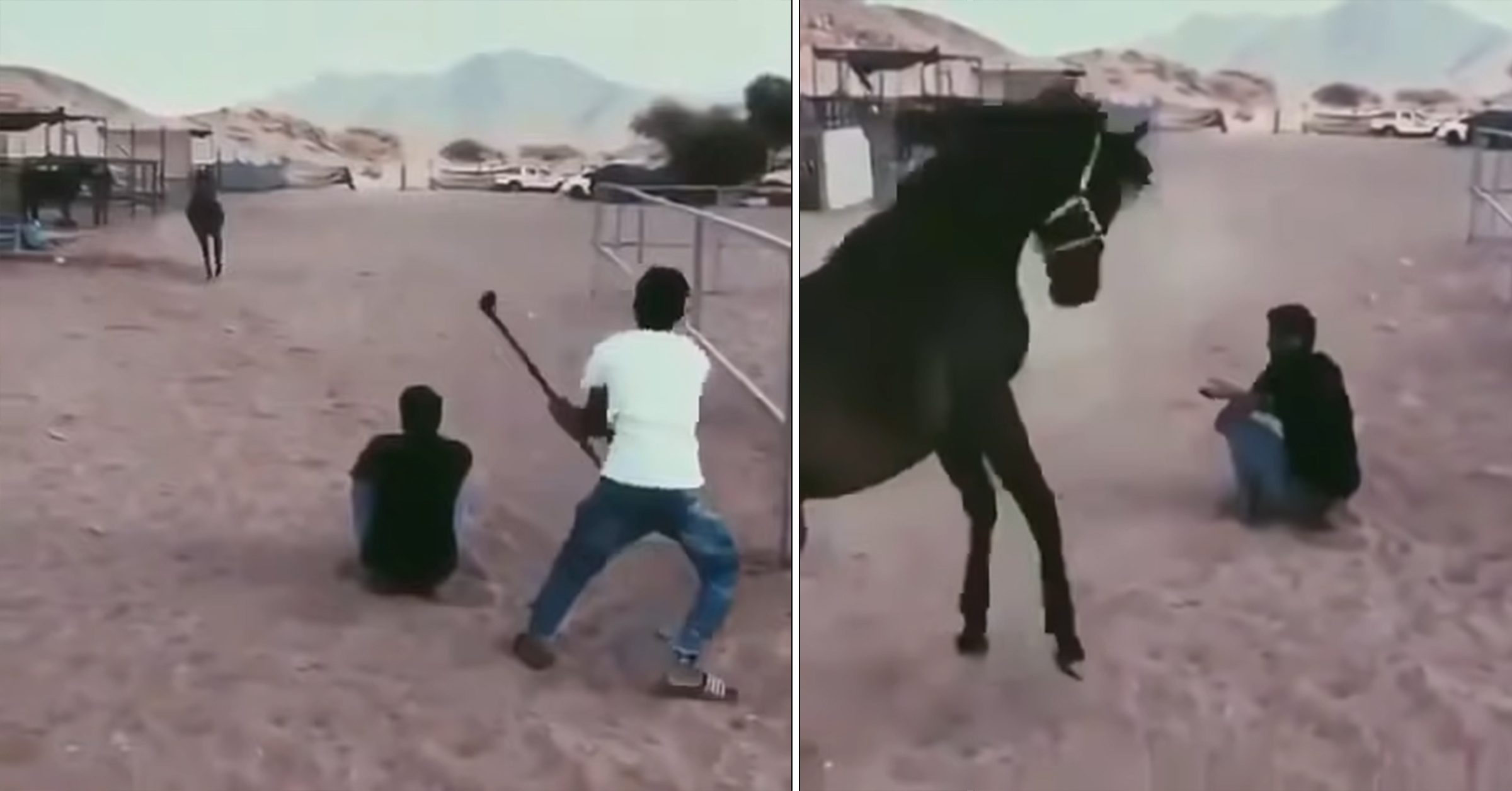Horses can be both loyal and protective, as most companion animals are. It’s easy to find examples of loyalty in horses because they will always try to protect us. This behavior is also something usual in herds. Humans can act like herd animals, but most aren’t used to it like horses are. Horses act that way because they must – it is what they are.

Horses feel danger or negative emotions, so they have the instinct to defend themselves, and also those around them, so the video shows that the horse has very fast thinking and reacts to any negative factor that could cause bad things, they show their protectiveness by nipping or kicking at other people or horses that are around them and their owner. If people crowd you while you’re mounted, they can nip from protectiveness or turn a rump to allow kicking. When they will feel danger, they will always protect us by running away while we are on their backs. This is often misunderstood as disobedience.

People tend to panic and don’t understand that some runaway horses were trying to protect their rider as well as save themselves. It’s herd behavior, adapted to include their pet humans, who can’t run as fast as a horse. They can be taught to spook/run less with patience and time. But this running with a rider from danger is the height of protectiveness to a horse, you just don’t see it because you have a different kind of brain and thinking. As far as you are loyal to them, they will be loyal to you as well.

Horses have a herd mentality where they like to socialize and lean on each other for comfort and protection. When horses are kept, training methods work to teach the horse that the human is the herd leader. This results in a close relationship with the human who they then learn to trust as if the humans were part of the herd. Their excellent memories remind them that we are there to feed and care for them and that with careful training they can recognize prompts whilst being trained or ridden but essentially the relationship is one of understanding.
